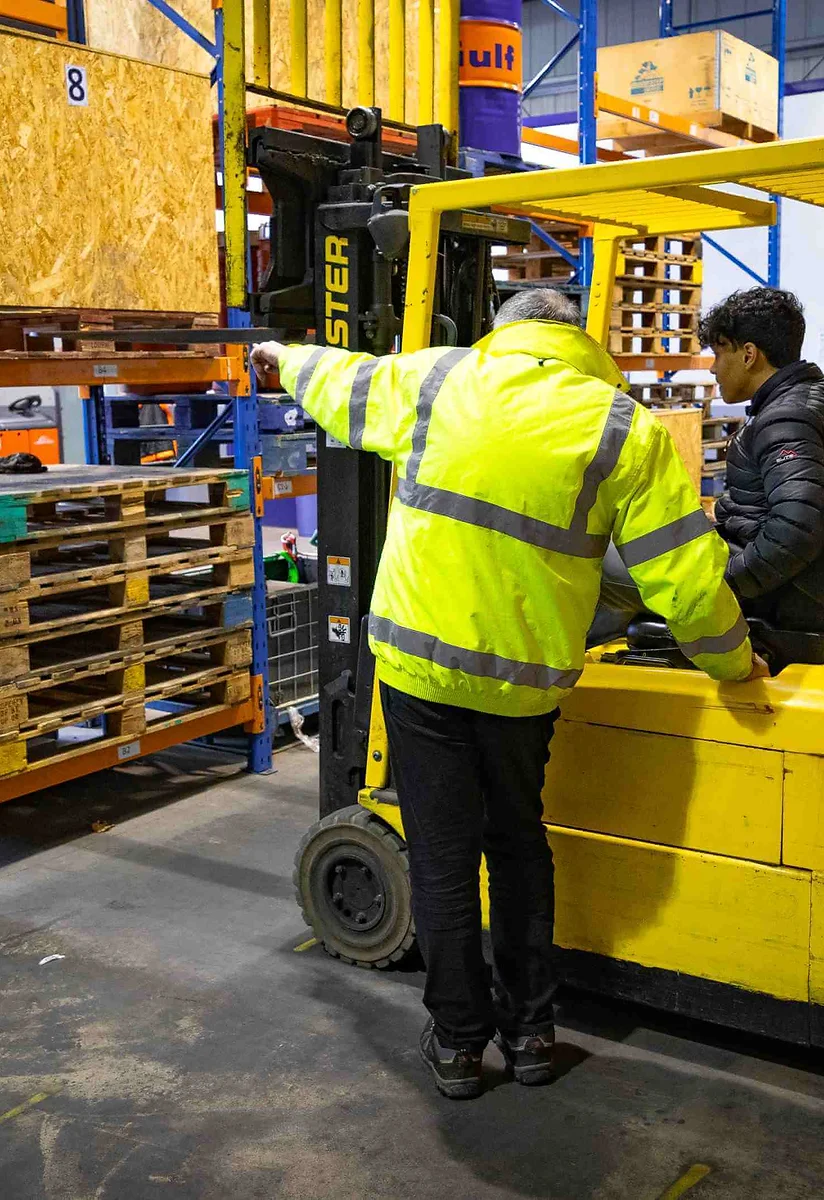Working Without Forklift Training

`````````````````````````````````````````````
As an employer, it is your job to ensure this training is sufficient and your staff are competent to do their jobs. This includes keeping them up to date with training, and ensuring your managers are properly trained to supervise the use of equipment. Anyone who uses any type of equipment at work must be given appropriate training to ensure they remain safe whilst using that equipment. For most pieces of work equipment, in low hazard environments, this training can be given in-house using the manufacturers’ instructions and the knowledge of more experienced colleagues. But in high risk environments, such as warehouses and construction sites this training must be formal, detailed and in some cases, in line with relevant legislation.
What is Adequate Training?
What constitutes adequate training will be different in every case, but the PUWER Approved Code of Practice specifically mentions some of the most hazardous equipment, and lays down exact minimum training standards for their use. Driver training is one of them, and it covers the use of forklift trucks as well as any ‘self-propelled work equipment.’ There’s a further Approved Code of Practice and guidance (ACOP) that supports PUWER, and states that employers should not allow anyone to operate forklift trucks who have not completed basic training and testing. It also states that those delivering the training must also be appropriately qualified to do so, having undergone appropriate training in instructional techniques and skills assessment, and having had sufficient experience in the industry.
The Consequences of Insufficient Training
The HSE (Health and Safety Executive) enforces these requirements and HSE Inspectors visit sites all over the country to ensure they are working in accordance with the legal obligations. They have the power to issue an informal warning if they find slight breaches, or an improvement or prohibition notice that must be acted upon quickly to rectify any issues. In the most serious cases, the HSE can prosecute companies or individuals they believe are breaking health and safety law. In August this year, the HSE took a timber firm to court following serious injuries sustained by a worker who had been run over by a forklift. The injured man, Mr Abrahams, had been working alongside a forklift – steadying the load being transported – when he was hit, sustaining leg fractures, as well as broken toes and deep abrasions. When the accident was investigated, the HSE inspector found a number of failings by the company to protect the worker, one of which was that the forklift operator’s forklift certification had expired 4 months previously. The court heard that the company had been made aware of multiple issues in relation to risk assessments, transport issues and driving training by the HSE, in the form of an improvement notice, which had not been rectified and led directly to the injuries sustained by Mr Abrahams. As a result the company were fined £15,000, and ordered to pay £9,850 costs.
The team at UK Forklift Truck Training can provide all the relevant forklift training required for your workers to carry out their jobs safely, including refresher training to keep your forklift operatives’ certificates up to date.